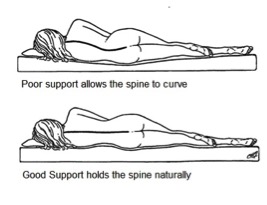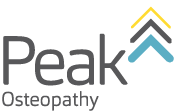Why do I wake up sore?
As Osteopaths we get asked this question on a regular basis by a variety of patients. We know that sleep is a restorative activity, one that provides the body with an opportunity for growth and repair, a time to recover from the stress of day-to-day life. Yet some would argue they wake in a worse state of pain compared with how they felt when they pulled the covers over the night before. Dr Damien Ryan (Osteopath) takes us through some of the steps we can take to help decrease those morning aches and pains.
Research shows that Australians are getting an average of 7 hours of sleep per night. So why the pain?
There are many reasons and perhaps it’s time to think of sleep quality rather just quantity.
When we sleep our body is practically motionless. Therefore, it is critical that we optimise this time of low activity to ensure that we wake without pain and start the day feeling fresh, well rested and energised.
Whilst there are many causes for waking in pain we would like to explore two areas that we believe contribute significantly to the quality of the sleep you may be getting and indeed your ability to wake without pain.
Many of us love to sleep on our stomach, but this posture is far from ideal. You may find it comfortable but sleeping on your stomach places the spine in a rotated position that, when held for an extended period, can lead to pain and discomfort.
The main reason for this is the position of your neck and spine. Your neck twisted acutely to one side with your spine working to compensate. These contrasting directional planes of movement may cause you to wake with a headache, neck ache and/or low back pain.
So what can be done to improve the state in which you wake and help transition you towards more of a morning person who bounds out of bed every day?
Firstly, try learning to fall asleep on your side. You may find this a little challenging in the beginning, but sleeping on your side is a far better for position for your body. One handy tip that helps keep the body on its side while you sleep is to place your bottom arm in front of you at all times. A pillow between your knees or a pillow held in front of you can also assist with this. This will help to prevent the body from rolling on to its front as much as possible.
Secondly, ensure your mattress and pillow will support your body properly. Do you have an old favourite pillow that is now wafer thin? Does your mattress slope to the middle? Do you wake up in the centre of the bed in a nice little valley? If so it might be time to review these two key elements to improve your night’s sleep.

Your mattress needs to support the key areas of your body, allowing the spine to maintain a straight position throughout the night.
A common myth is that a firm mattress is the best kind of mattress. A mattress that is too firm elevates the two parts of the body that make contact with it – the shoulders and hips. This in turn causes an undesirable amount of curvature in the spine.
At the other end of the spectrum a mattress that is too soft presents an opportunity for the body to sink too far into it, which again may cause excessive curvature to the spine.
No single mattress or pillow is perfect for everyone. It is important that when you are purchasing a bed you take the time to lie on it for as long as possible in the position in which you sleep. One minute in the furniture showroom will not give you an accurate guide of how the mattress will perform over eight hours night after night.
A handy way to measure if a pillow is the right size for you is fitting the pillow between your shoulder and neck. The pillow is the right height when it’s the same as distance as from the top bony point on your shoulder to where your neck meets your shoulders. If your pillow is too high or too low the neck will not sit in a neutral position, which may cause compression through the joints of the neck and cause joint irritation or muscle soreness.
To make your life easier memory foam pillows are available at Peak Osteopathy and can be adjusted specifically to support you.
So as you go to bed tonight spare a thought for the muscles and joints in your body that look after you during the day and look after them at night! You will be pleased with not only the quality of sleep you will achieve but also the stiffness and pain you can avoid if you can change from stomach snoozing, paper thin pillows and mattress that do not support you properly.
If you’re wondering whether your mattress or pillow may be contributing to your symptoms persist please don’t hesitate to contact the clinic and friendly member of the team here at Peak Osteopathy will be happy to help.



